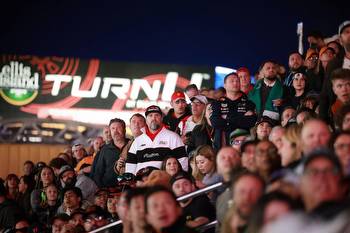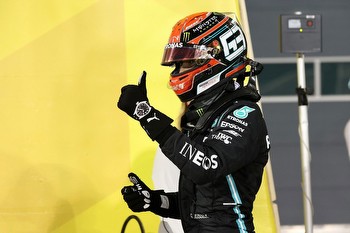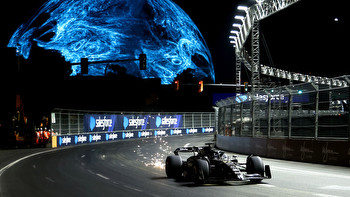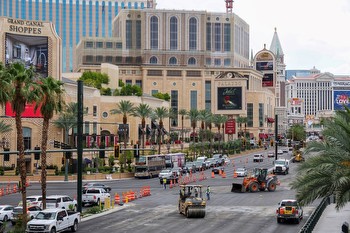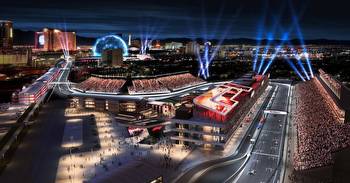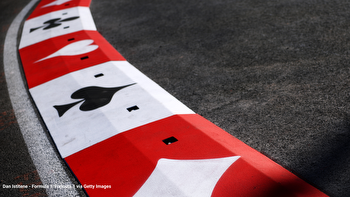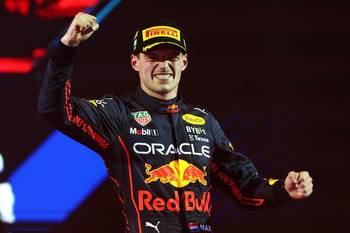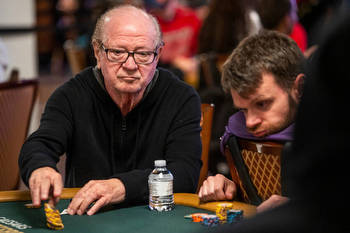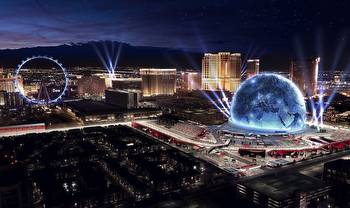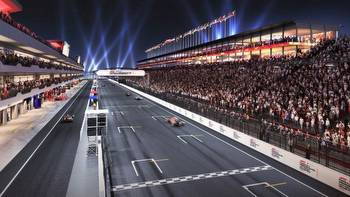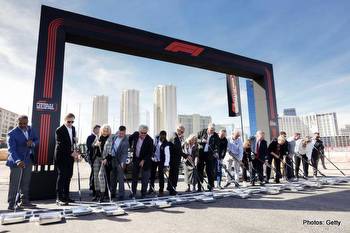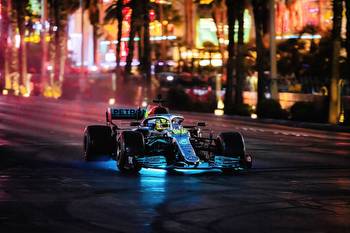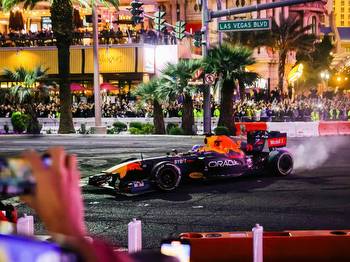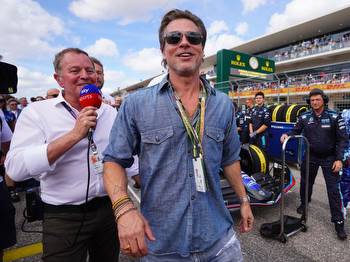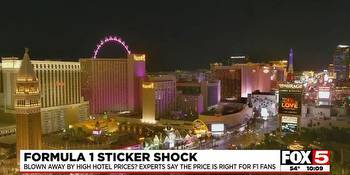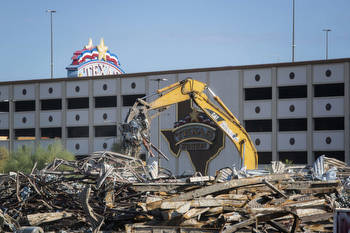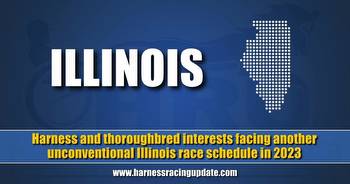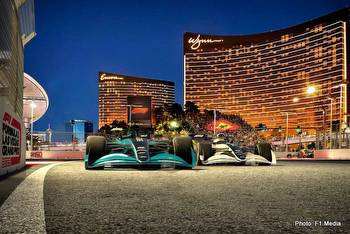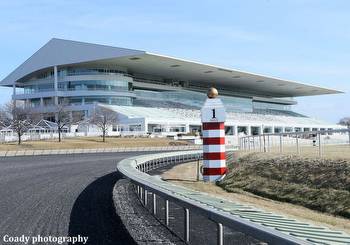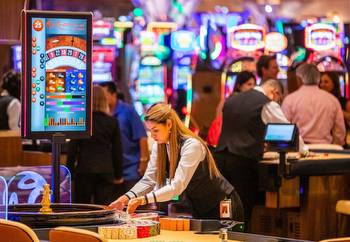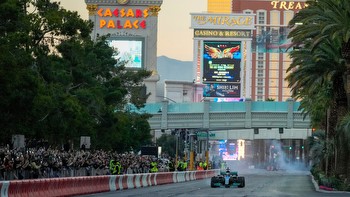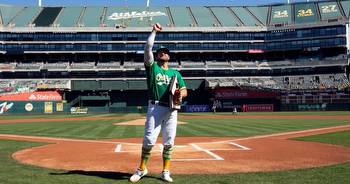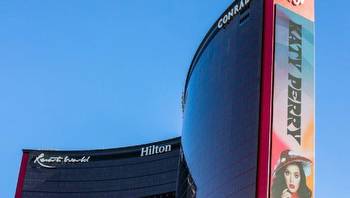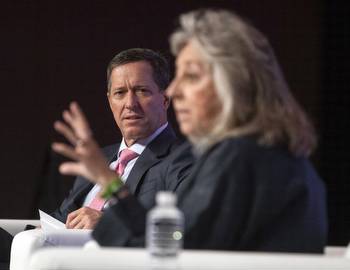With Formula 1 on the horizon, Las Vegas is no stranger to motorsports
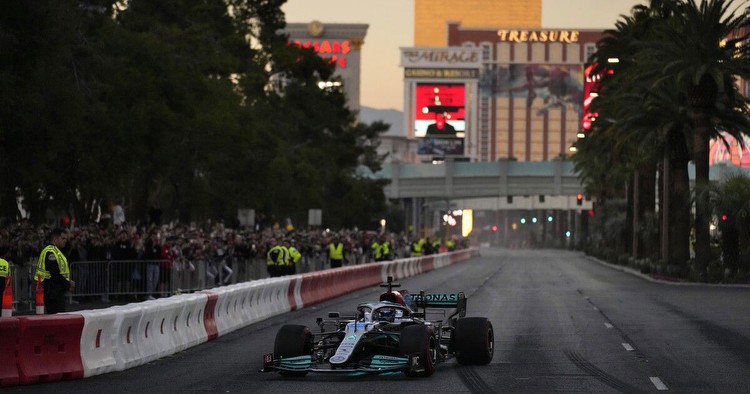
You can’t scroll social media or pick up a newspaper without reading about November’s Formula 1 race — or the headaches its causing on the Las Vegas Strip. But this won’t be the first time Las Vegas has hosted the Grand Prix. The first one was held entirely at Caesars Palace in 1981.
That race made sense because southern Nevada has a long association with motorsports, dating back to the 1950s. There was even an early race track on the Strip back then.
And yes, that means the Mob got in on the action.
Randall Cannon, a local freelance writer and author of Caesars Palace Grand Prix: Las Vegas, Organized Crime and the Pinnacle of Motorsport — and also a former race car driver — says that one reason motorsports gained a foothold so much earlier than the biggest sports organizations is because of anxiety over betting. "For the better part of Las Vegas' existence, premier-level major league stick and ball sports were barred from entering the Las Vegas market. The commissioners of the respective leagues simply did not want their sports played in Las Vegas because of the prospect of insider gambling and fixed outcomes."
That didn't mean there wasn't funny business afoot with car racing. Notorious developer Mo Dalitz, who had ties to organized crime, got involved with one of the more prominent early race tracks in Las Vegas, the Stardust International Raceway, because he sought a way to connect gambling, hospitality and motorsports. It also provided a different way to make money.
"I think the mob's interest in car racing, I believe, was twofold," says Cannon, who wrote a book on the track in 2018. "And they both sprang from the acreage itself. The Stardust was on 480 acres; Las Vegas Park, the thoroughbred track, was on 480 acres, three-quarters of a square mile. And a very wise casino executive made it clear to me one day that what the mob seeks is liquidity. They seek cash — free, untaxed cash. ... The mob would use these large pieces of property to transact cash. They could buy property — it was extremely plentiful in the Las Vegas Valley and in all the sun states — they could buy it cheap, and they might sell it at a tremendous profit the next day, and what that transaction symbolized was actually someone buying hidden points in a Las Vegas casino. I think it was really that dirt simple."
The many local race tracks and competitions Las Vegas boasted in the middle part of the 20th century eventually led to Caesars landing a Formula One race in 1981. How it was able to fit it all within the footprint of the casino — and maybe also the lot just north of it — is one of the great cocktail-napkin stories of local sports. (The story was also shared at a recent discussion about motorsports, Las Vegas and the mob at the Mob Museum, which can be viewed here or below.)
"[Former Formula One chief executive] Bernie Ecclestone and [former Caesars executive] Bill Weinberger were having a meal in the Caesars Palace coffee shop," says Cannon. "They're both struggling with how to get this two-and-a-half mile minimum-length circuit on that property. And Bill turned over the placemat and said, "How about this?" and outstretched his hand and ran — probably a keno pencil at the time — around his fingers and said, "Could we do it like that?" He just outlined his hand on the placemat. And so that became roughly the shape of the track."
Cannon believes next month's Formula One race — and the subsequent ones to come annually — will turn Las Vegas into an official car racing hub. "There is an American team in Formula One: Haas Formula One. They're an American industrial company currently headquartered in California, although their Formula One team is headquartered in England. But they've got plans to move to Henderson, and I believe that'll create some synthesis of energy around Haas. [And] Formula One's got their paddock facility [at Harmon Avenue and Koval Lane]; they're not going to let it sit idle 51 weeks of the year. It wouldn't surprise me if Formula One has a resort development plan in their future."
Guest: Randall Cannon, author and freelance writer, racing enthusiast and former motorsports driver

